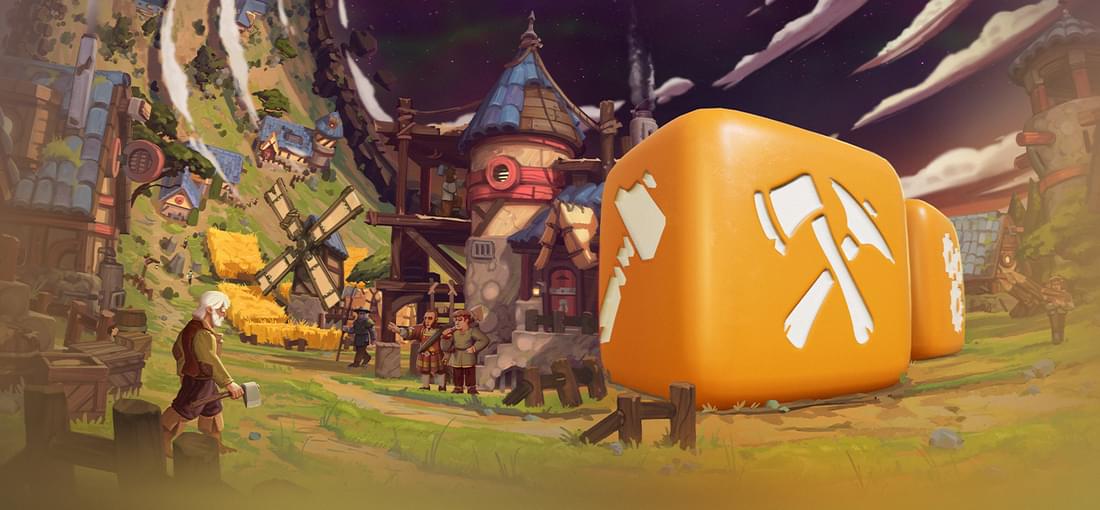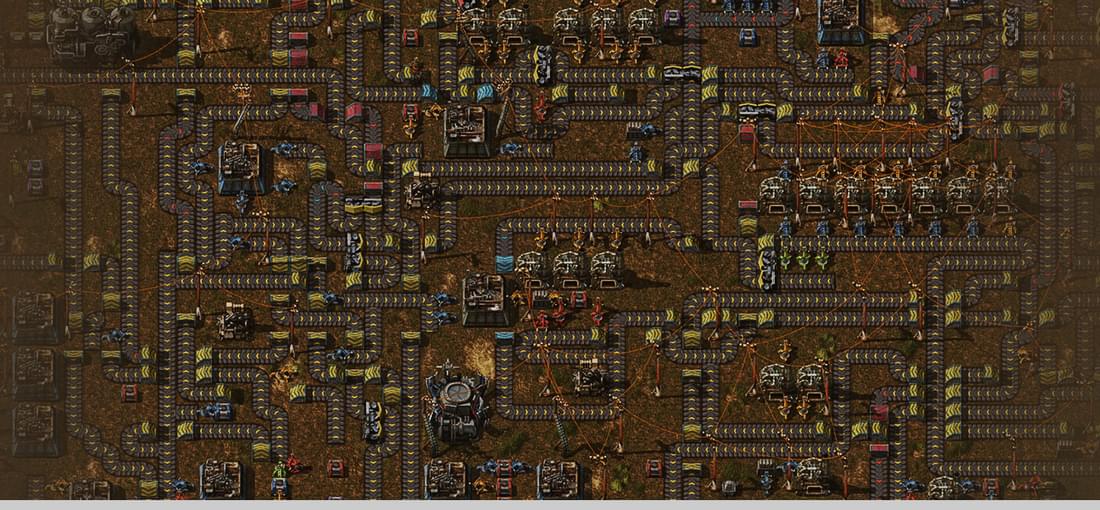


Have you played the board game Stone Age? Or Agricola? These are "worker placement" games, where on each turn you place your workers, they perform actions, you get stuff, and then you take your workers back for the next round. Now combine a worker-placement game with an RTS, and you have Dice Legacy. Your workers are actual dice, with a variety of faces. You can place them based on what's on the top face. Or you can roll to get something different. But each roll removes 1 durability from your dice (they have a max of 16), so you need to "feed" your dice to get their durability back up; a die at 0 durability disappears forever if rolled. You start with 5, but you can increase to a pool of 12 dice eventually. You can also convert them to different kinds (soldier, monk, citizen) with different strengths. Some dice have numbers on a face in addition to the symbol, which gives them extra power; a die with "2" on a face can substitute for two normal dice with that face. What do the dice do? They harvest wood, stone, iron, herbs. They grow wheat in fields, harvest it, and then bake it into bread, or turn it into ale. They build extra buildings and explore the map further. And they fight. At an ever-increasing speed, you'll be beset with bad guys from the other end of the map whom you'll need to fight with sword-faced dice. By the way, your pool of dice has 12 slots, but you can actually have as many dice as you can manage to juggle at once. If you end up with more than 12 dice in your pool, you'll need to discard some, but if you can manage to keep sending out dice and only keep a few at home at a time, you can have as many as you can manage. This makes things more stressful than an RTS, because you have the pressure of keeping your "workers" busy. You'll need to make use of what you have rather than incessantly rolling. It's not a relaxing game. You'll fail a lot. But with practice, you'll get it. Is it fun? I think it's fun. Hectic, but fun.

...because to review it, I have to stop playing it first. This isn't your typical "craft stuff" game. Oh, you can manually mine your basic elements at first: stone, coal, iron, and copper. Then you can smelt iron and copper plates. But then, why not create coal-powered miners to work for you? And then a pump, boilers, and steam engines to get electricity going. Then some conveyor belts to get products moving around. And robot arms ("inserters") to move things on and off those belts. Later on, trains. And train signals as well, so you can automate your trains. At some point, you'll have so many conveyor belts that you'll despair of having more room to build. Enter the roboport, which hosts flying robots that can fly around fulfilling requests, so you can get a more flexible system. Oh, and it hosts construction robots as well, to build plans you lay and to do repairs for you. Oh, did I mention that all the while, the planet's native buglike species is trying to kill you? So you'll need to develop weapons too, from automated gun turrets to lasers to a tank with explosive shells. But aside from all that, what really makes this game is the intelligence with which it was written. Opening a stone furnace to retrieve newly-forged iron plates is tedious? No problem; just control-click to grab the plates as you run by. Laid all your conveyor belts in the wrong direction? No need to tear them up; just lay new belts over them in the correct direction and they'll replace the originals (which will go back into your inventory). Replacing an early robot-arm inserter with a more advanced model, or a slower furnace with a faster one? Just stick the new one right on top of the old one and it seamlessly replaces it. Find yourself building the same set of things over and over? Make a blueprint out of them and have your robots build it for you! This game is deep and amazing. If you're a programmer or an engineer, it'll suck you in and not let go.